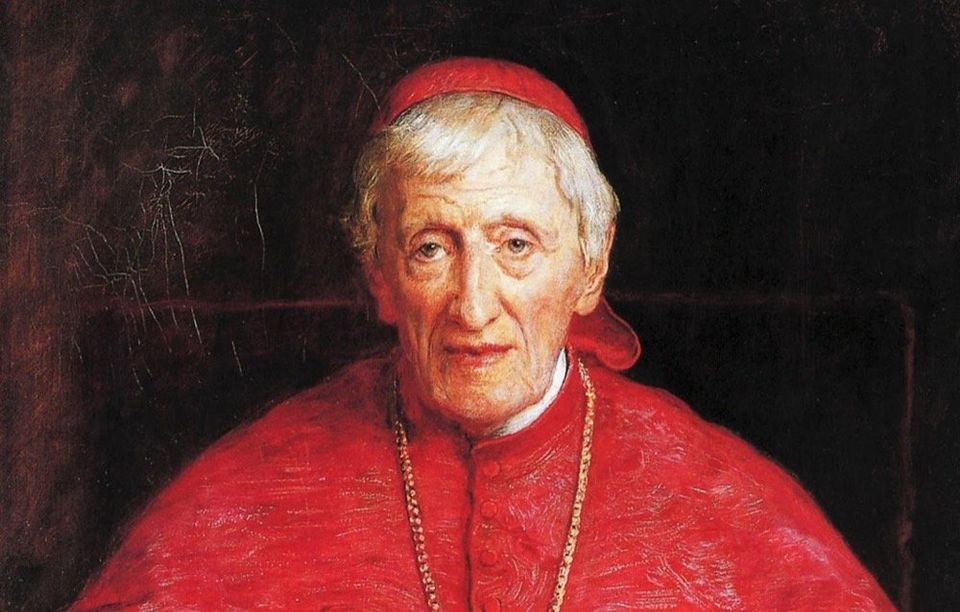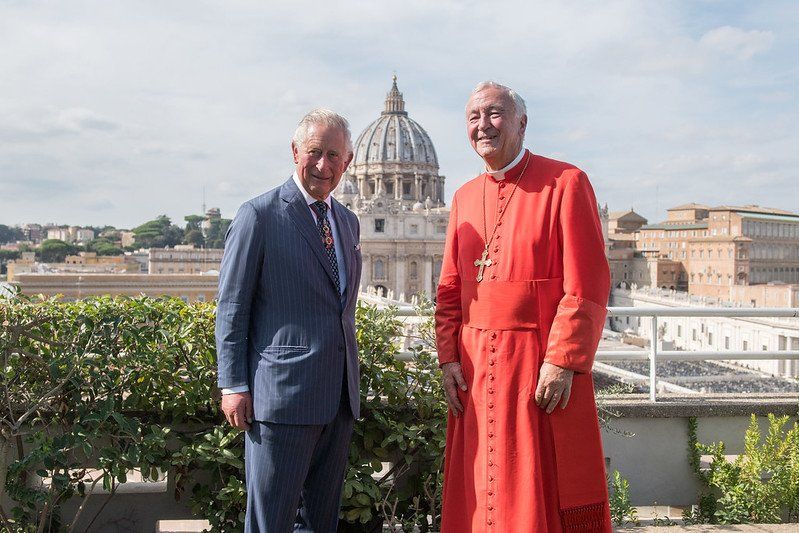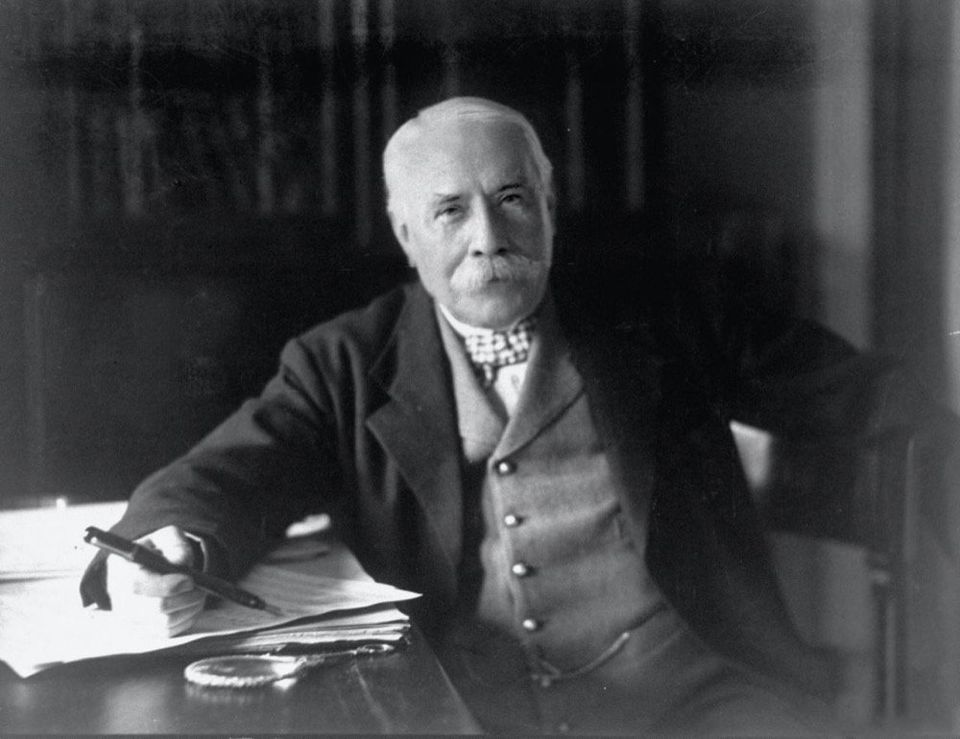Our New Saint: John Henry Newman
“I ask not to see — I ask not to know—I ask simply to be used.”
At Belmont we have celebrated as Pope Francis created a new saint for the Church in England, John Henry Newman. On the weekend of the Canonisation the permanent deacons from the Archdiocese of Birmingham with with us on retreat.
It gives us pause to ask of this canonization, why Newman? What is his greatness? Is it as his insights as a teacher or warmth and humanity as a pastor? Is it as a man of courage seeking the truth at personal cost? Is it as a man of great friendships, who even at the painful parting of friends, maintained great affection for those he left behind. In his own words he wished to be “a link in a chain, a bond of connexion between persons…. an angel of peace, a preacher of truth in my own place.” He was all those things and much more.
Writing in the Osservatore Romano in a generous tribute to the new saint, Prince Charles praised the way Newman respectfully engaged in public and private debate: "In the age when he lived, Newman stood for the life of the spirit against the forces that would debase human dignity and human destiny. In the age in which he attains sainthood, his example is needed more than ever – for the manner in which, at his best, he could advocate without accusation, could disagree without disrespect and, perhaps most of all, could see differences as places of encounter rather than exclusion." He also praised his theology as an Anglican and as a Catholic for its “fearless honesty, its unsparing rigour and its originality of thought.”
What is the originality of his thought, and why might people be talking about him being not just a saint, but a new Doctor of the Church? Why is he considered an early father of the Second Vatican Council?
As an Anglican priest-scholar he dug deep into the tradition of the
church, with reverence for the Word of God, and its great interpreters, the
Fathers of the Church. But as he came to believe that “to be deep in history is
to cease to be Protestant" he could only seek communion with the
Catholic Church, led by the "kindly light" of the Holy Spirit. And as he searched
for the truth he proposed not new things, but uncovered eternal truths that had
been half forgotten and made them shine again.
What he found in the Church was not an antique shop of ancient treasures
to be nostalgically reverenced and guarded. What he found in the Church is a
living body walking in history, whose faith does not change, but whose expression
develops and deepens. We see new things. We see things better. The truths of
faith become clearer over time.
In Newman’s great work of historical theology, his Essay on the
Development of Christian Doctrine
,he would say that “to live is
to change and to be perfect is to have changed often.” Reflecting on this the then
Cardinal Ratzinger would say of himself: “precisely in changing, I have tried
to remain faithful to what I have always had at heart.” As Cardinal
Claudio Hummes remarked of Newman “it is by moving forwards that makes the
Church loyal to its true tradition.” Newman reminds us that the Church walks
in history. The
faith is dynamic. We are not antique dealers polishing the treasures of the
past. The church is not preserved in formaldehyde.
But
why did one English Roman Monsignor at the time of his conversion call him ‘the most
dangerous man in England.’ Partly because of his promotion of the laity whom
the Monsignor thought should stick to hunting, shooting and entertaining. The
laity are at the heart of the Church, Newman would reply, and kept the faith at
times in history when the bishops mislaid it.
“In
all times,” Newman insisted, “the laity have been the measure of the Catholic
spirit.”
Once
when discussing the laity, Archbishop Ullathorne scornfully asked Newman, “Who
are the laity?” Newman wrote in his
diary what he wished he had said in reply: “My Lord, the Church would look
rather foolish without them.” In a lecture on Catholics in England
he
said: “I want a laity, not arrogant, not rash in speech, not disputatious, but
men who know their religion, who enter into it, who know just where they stand…
who know their creed so well that they can give an account of it, who know so
much of history that they can defend it. I want an intelligent, well-instructed
laity…”
At
the end of Newman's life, Archbishop Ullathorne visited him, and when he was
leaving, Newman knelt at his feet and asked his blessing, saying that his own
poor work for the Church was as nothing compared to Ullathorne's. “I felt annihilated in his presence,” said
Ullathorne; “There is a saint in that man.”
Newman
prayed before the Blessed Sacrament: “I ask not to see — I ask not to know—I
ask simply to be used.” Just as he prayed not to see the distant scene, but
take the next step necessary. It is a prayer we can make our own
Sir Edward Elgar set Newman’s great poem The Dream of Gerontius
to
music. He occasionally came here to
worship in Belmont’s early years. In his diaries he records attending High Mass
one Sunday and remarks upon the music: “heard the monks sing the Song of the
Angel from the Dream of Gerontius.”
It is lovely to think that Elgar wove snatches of the monks’ singing into his setting of Newman’s great poem, their song adding melody to Newman’s Dream. Now as angel faces smile and rejoice in heaven at a new saint, we can echo their eternal hymn: “Praise to the Holiest in the height, and in the depth be praise. In all his words most wonderful, Most sure in all his ways.”












